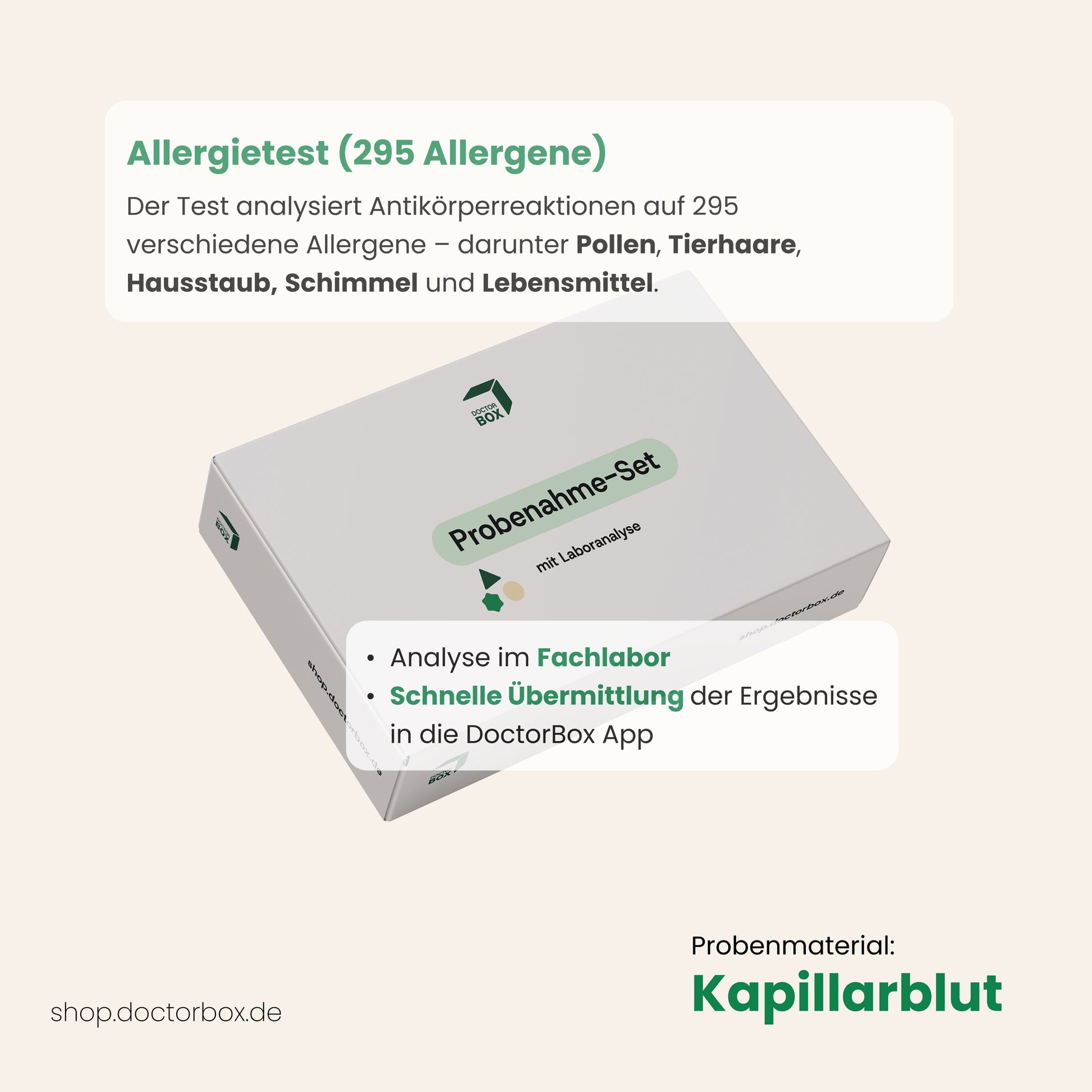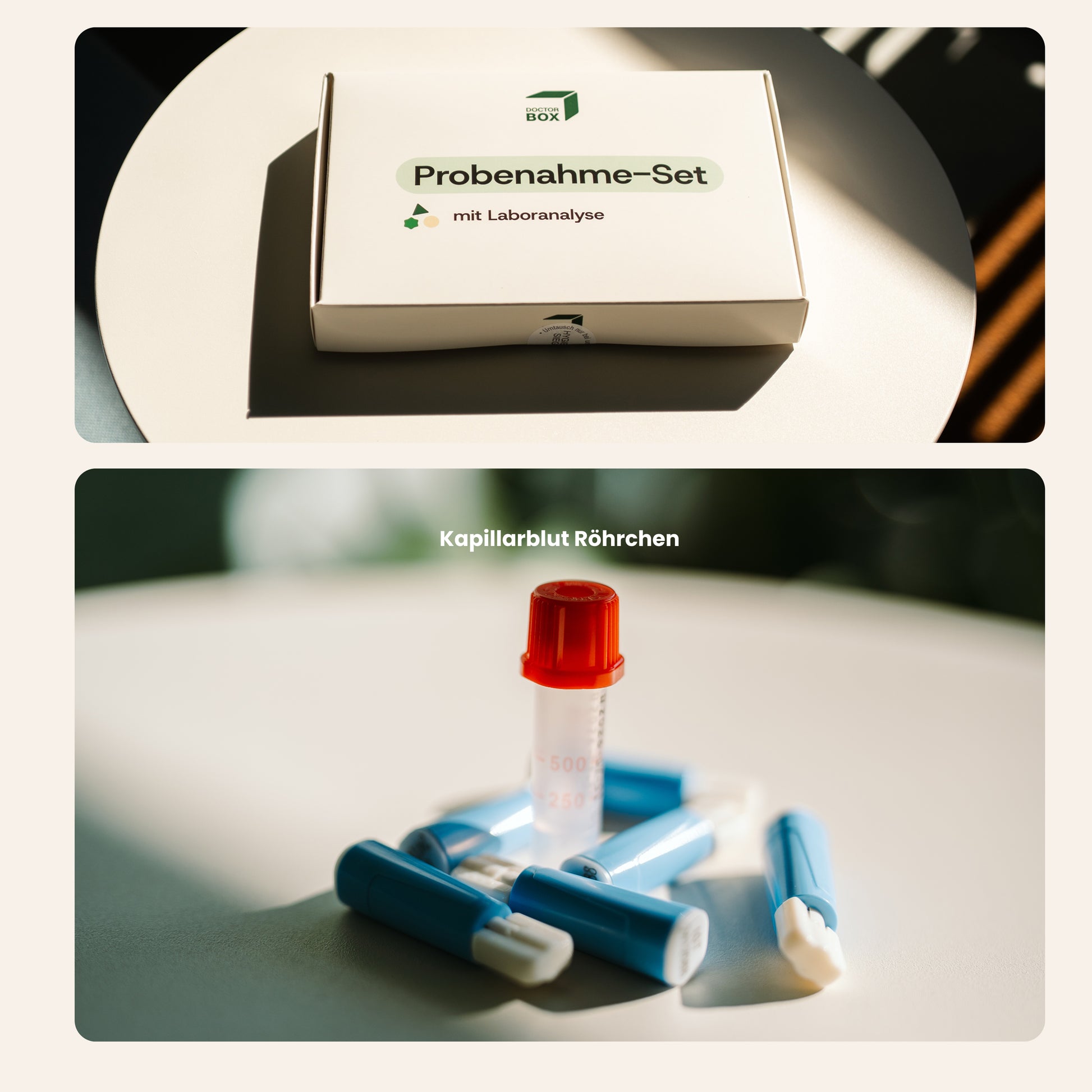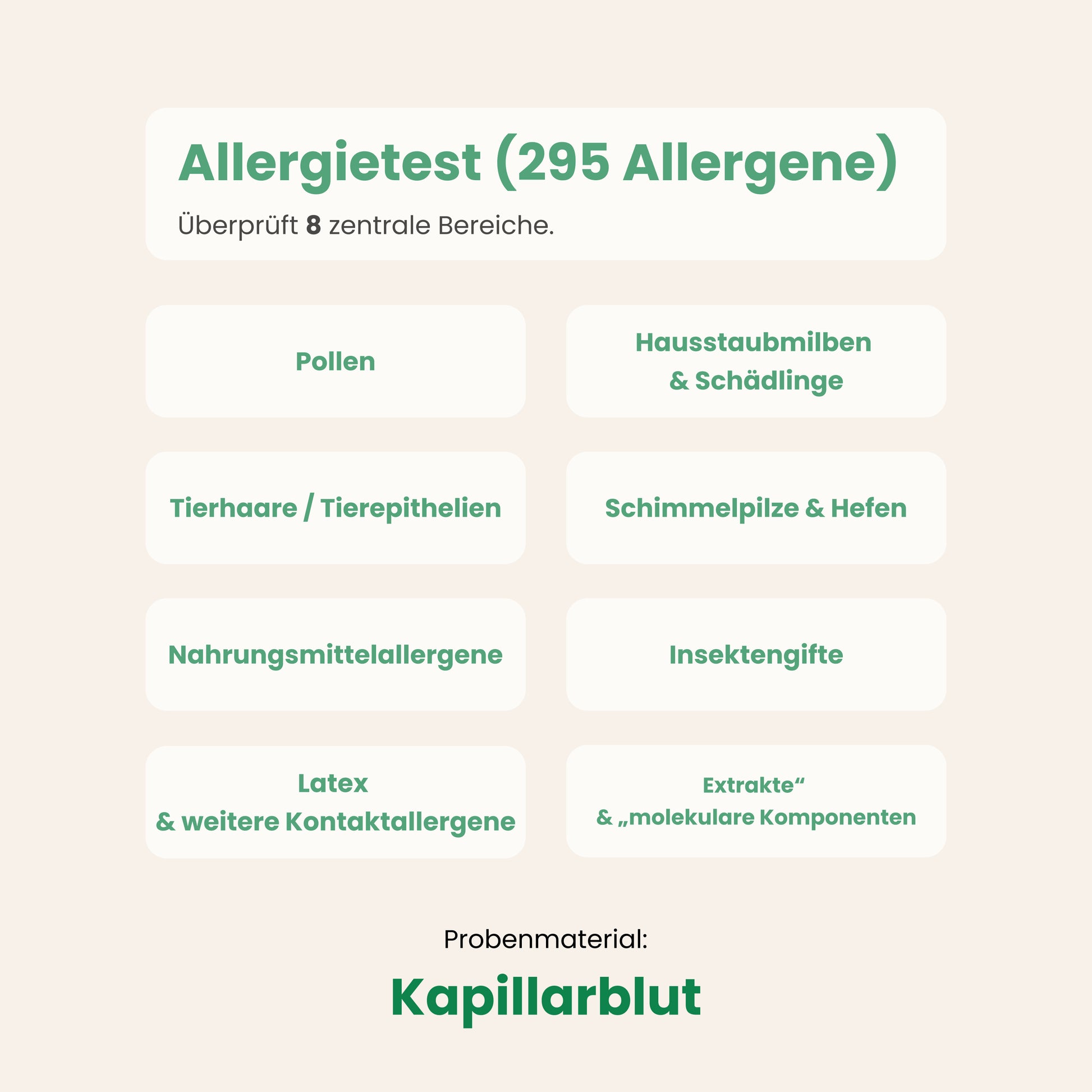Allergy test (295 allergens)
Allergy test (295 allergens)
Couldn't load pickup availability
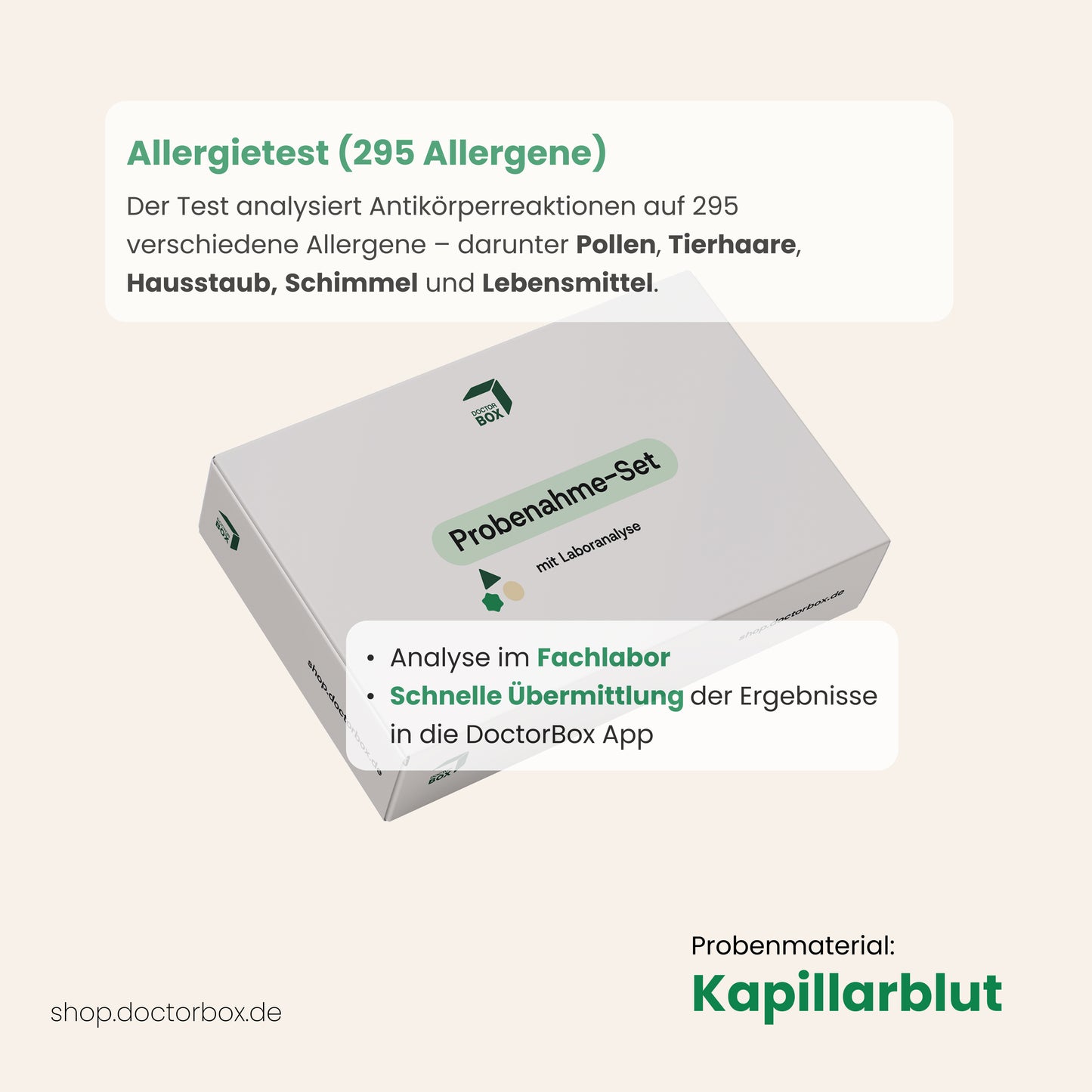
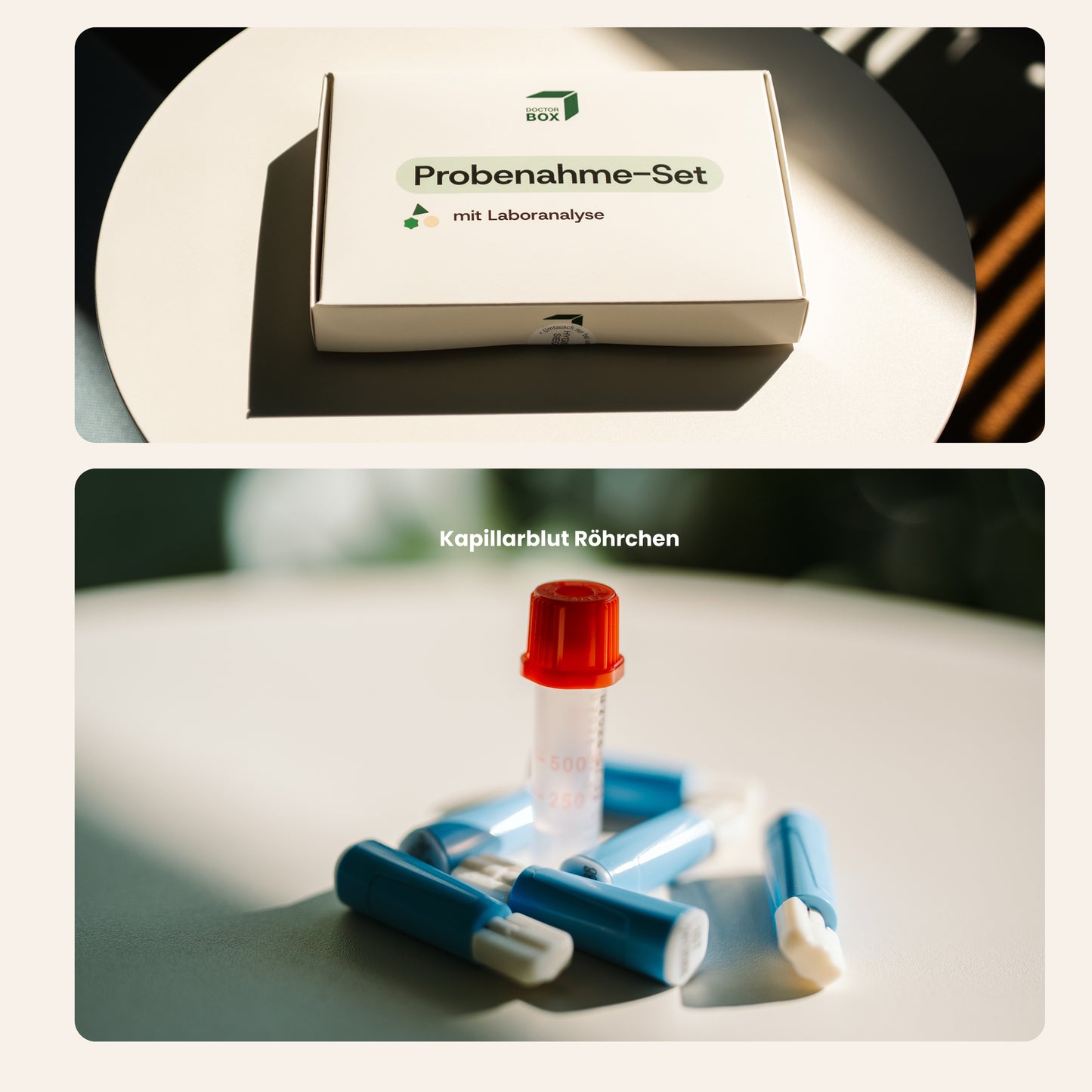
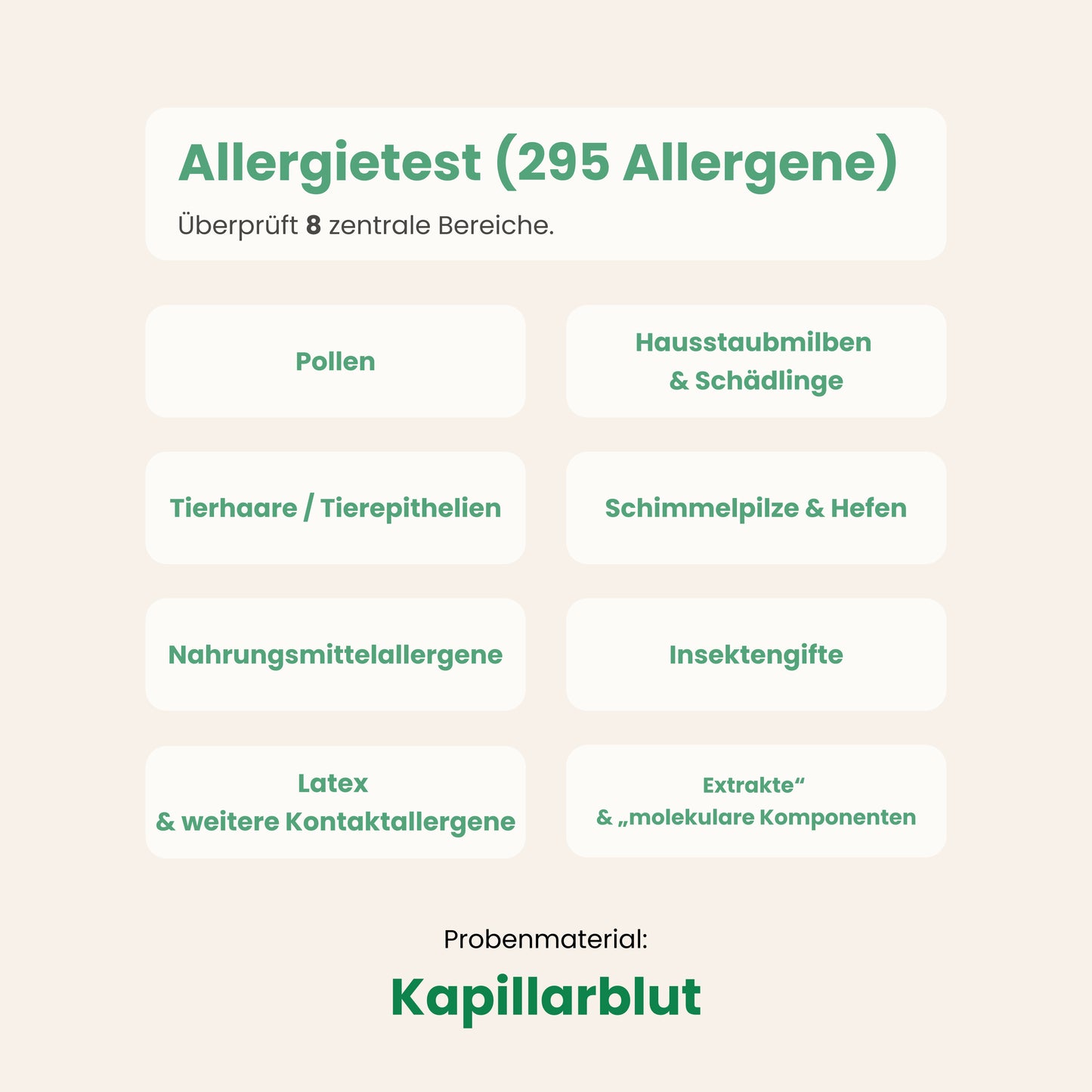


Your at-home allergy test – an overview of 295 allergens
Unclear symptoms like itching, runny nose, skin reactions, or stomach issues? Find out what your body is really reacting to – with the DoctorBox allergy test for 295 allergens. Easy to do at home, safely analyzed in the lab, and results available digitally.
The test is based on the advanced ALEX® IgE allergen screening—a technology that can differentiate true sensitizations from cross-reactions. This gives you a reliable and comprehensive allergy profile.
Your benefits at a glance:
- Comprehensively tested: 295 allergens from all major categories – pollen, foods, animal hair, mites, molds & insect venoms
- Easy & convenient to do at home: Only 0.5 ml of blood—done yourself in just a few steps
- Fast results: You’ll receive your lab report within 3–7 days directly in your DoctorBox health account in the app**
- Clearly explained: All results are presented visually and in an easy-to-understand way—including a traffic light system & response strength
- Discreet & flexible: No doctor’s appointment needed – test anonymously, whenever and wherever you want
This is what’s tested:
Your allergy profile includes 295 allergens from the following categories:
- 61 types of pollen (e.g., grasses, birch, ragweed)
- 24 mites
- 103 plant-based foods (e.g., nuts, fruit, vegetables, spices)
- 40 animal-based foods (e.g. milk, eggs, fish, meat)
- 15 molds and yeasts
- 20 animal hairs, epithelial cells & dander
- 9 insecticides
- 10 additional environmental allergens
This comprehensive profile gives you a complete picture of your sensitization status and helps you distinguish between true sensitivities and cross-reactivities.*
* In immunology, sensitization refers to the process of immunizing an organism with a specific antigen. As a result of this sensitization, the antigen triggers an acute immune response.
** If the sample is shipped on Monday or Tuesday (possibly still Wednesday).
Typical symptoms of an allergy – recognize the warning signs 🤧
Allergies often present with symptoms that are easily mistaken for colds or skin irritations. In these cases, your immune system tries to fight off harmless substances like pollen, animal dander, or certain foods as if they were a “threat”—and overreacts.
Common allergy symptoms include:
Itchy, watery, or red eyes
Nasal congestion or runny nose, frequent sneezing
Coughing, shortness of breath, or wheezing (similar to asthma)
Rash, eczema, or hives
Itching on the skin, palate, or in the throat
Stomach pain, nausea, or diarrhea after eating
Swelling of the face, lips, or eyelids
In some cases, more severe reactions can occur, such as anaphylactic shock—a rare but life-threatening overreaction of the body.
What many people don't know:
Allergy symptoms don't always appear right away. Some issues develop with a delay—or only in certain situations, such as during physical exertion or pollen season. If you notice these symptoms occurring more often, it’s worth getting an allergy test. That way, you can find out what your body is reacting to—and take targeted action.
👉 Find out now if an allergy is behind your symptoms—with the at-home test for 295 allergens.
Your digital report—clear & personalized
After your sample is analyzed in a specialized medical lab, you’ll receive your personal, multi-page report directly in the DoctorBox app.
The results are clearly visualized and presented in a way that’s easy to understand, even without medical knowledge. You can instantly see how strongly your body reacts to each individual allergen—supplemented with helpful additional information and explanations.
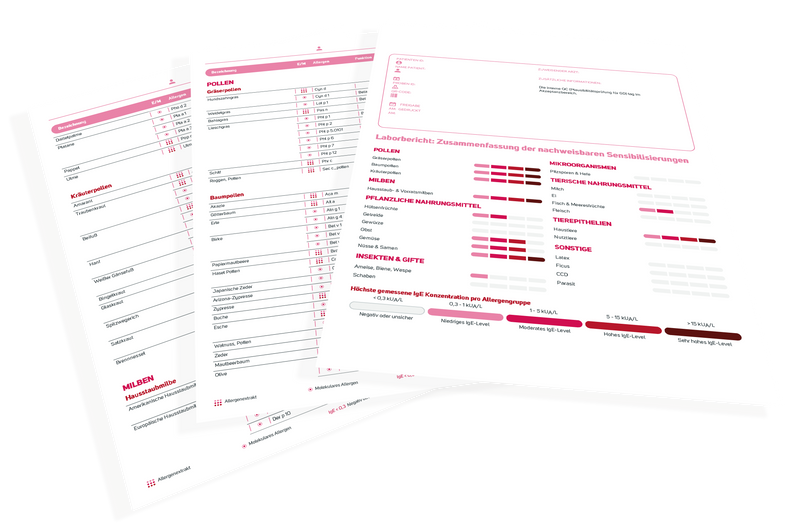
You can find the instructions here.
The ALEX 2 allergy test is beneficial for several reasons:
- First of all, it is a precise and reliable method for identifying allergies. The test can detect allergens that may not be recognized by conventional skin tests, offering higher sensitivity. This is especially advantageous for patients with severe or unclear allergy symptoms.
- Another advantage of the ALEX 2 allergy test is its wide range of tested allergens. The test can screen for more than 280 allergens, including foods, environmental allergens, and insect venoms. This allows for a comprehensive investigation of potential triggers of allergy symptoms.
- The test is less invasive than traditional skin tests and requires only a blood sample. This means it can also be used in cases of skin problems or when taking certain medications that could affect skin tests.
Overall, the ALEX 2 allergy test is a sensible and effective method for identifying allergies and determining the triggers of allergy symptoms.
The ALEX 2 allergy test provides a detailed report on the allergens tested and the specific IgE antibody levels in the patient’s blood. The report is written in an easy-to-understand format and covers the following points:
- List of allergens tested: The report includes a complete list of all allergens tested. This covers food allergens, environmental allergens, insect venoms, and other potential allergens.
- Specific IgE antibody levels: The report shows the specific IgE antibody levels for each allergen tested. These values are usually given in kilounits per liter (kU/L) and indicate the likelihood that your body will react to each allergen.
- Categorization of allergens: The tested allergens are usually divided into different categories based on the specific IgE antibody levels. This can help patients understand the severity of their allergy.
- Recommendations and advice: The report may also include recommendations and advice for treating and preventing allergy symptoms. This may include behavioral changes, medications, or immunotherapy.
Overall, the ALEX 2 allergy test report provides a comprehensive assessment of your allergy status and helps your treating physician or allergist recommend appropriate treatment and prevention.
You can find a sample report here.
Reimbursement by statutory health insurance (GKV) is currently not possible. Privately insured individuals can try to submit the cost to their health insurance (PKV). Feel free to contact us—we’ll provide you with an invoice for the test.
Contact: info@doctorbox.eu
DoctorBox home tests must not be used:
- If you are not yet of legal age (18 years or older)
- If you have difficulty with the sight or collection of blood. In this case, collect the sample in the presence of another adult or have it collected by medical professionals.
DoctorBox home tests should only be used after consulting a doctor if:
- You have a tendency to bleed, a bleeding disorder, or are taking anticoagulant medication.
- You are pregnant or breastfeeding. In this case, reference values may differ.
Allergies occur when the body's immune system overreacts to otherwise harmless substances called allergens. The body's immune system mistakenly recognizes these substances as a threat and triggers a defensive response.
Most allergies develop when a person is first exposed to a potential allergen. When this happens, the immune system produces specific antibodies to fight the suspected invader. When you come into contact with the allergen again, these antibodies are activated and trigger a reaction.
The symptoms of an allergic reaction can be varied, ranging from mild symptoms, such as itchy eyes and stuffy nose, to severe, life-threatening reactions such as anaphylactic shock.
Allergens can be diverse, for example pollen, animal dander, food or medicines. The exact causes for the development of allergies are not yet fully understood, but genetic factors seem to play a role. Environmental factors such as air pollution and dietary habits can also increase the risk of an allergy.
Identifying the trigger allergens can be challenging due to the large number of allergens. Testing for specific allergens is often difficult. Food allergy tests can also cause unpleasant symptoms such as abdominal pain, malaise and skin rashes, which is particularly distressing for children.
However, the modern allergy test called ALEX has a major advantage here. With this test, a total of 295 allergens, including 154 potential foods, can be tested in just one run (blood sample 0.5 mL). This means that almost the entire sensitization status can be mapped.
Sample collection process
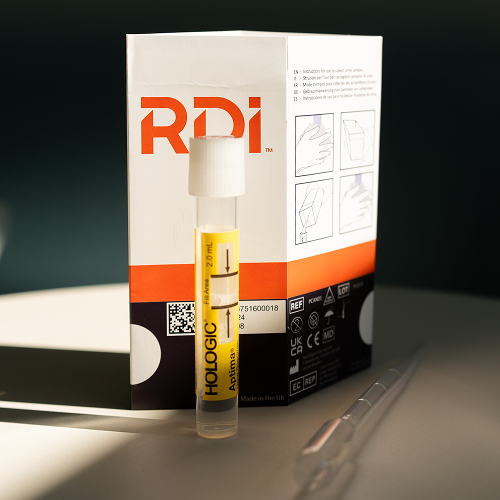
1. Collect sample at home
Read the enclosed instructions carefully before starting. Collecting the blood sample is straightforward and only takes a few steps.
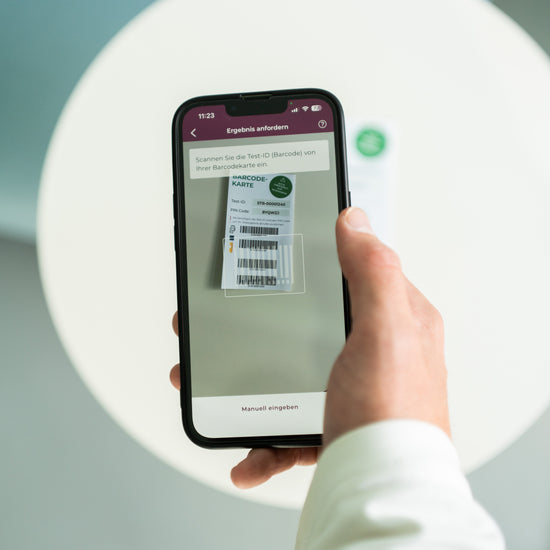
2. Scan barcode
Simply scan the included barcode in the DoctorBox app – this ensures your sample is uniquely assigned to you.
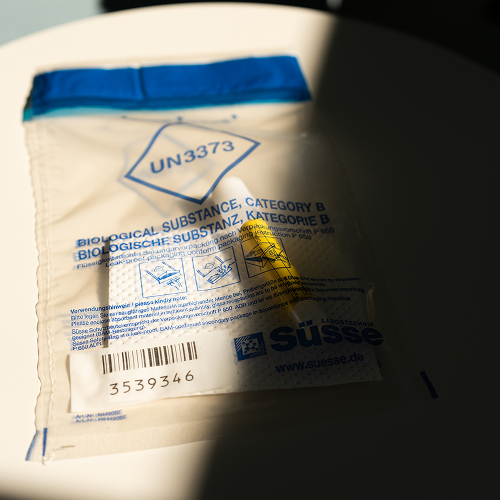
3. Send samples
Package the blood sample as described in the instructions and, if possible, drop the prepaid envelope in the mail on the same day.

4. Your results in the app
After the lab analysis, you’ll get your result directly in the DoctorBox app – clear, easy to understand, and accessible anytime.


